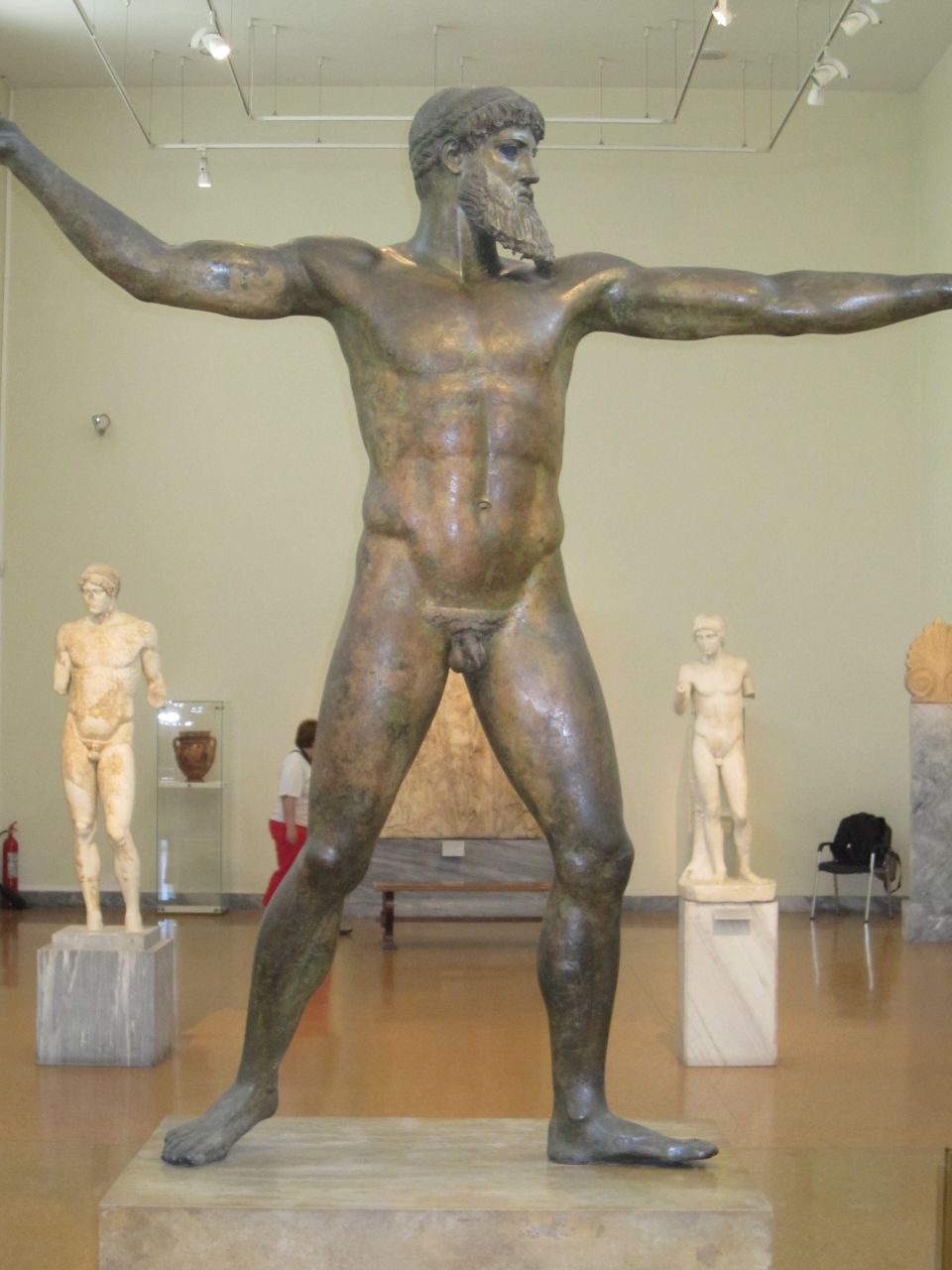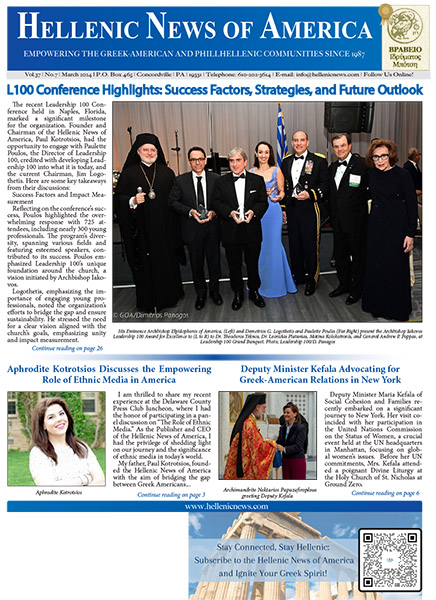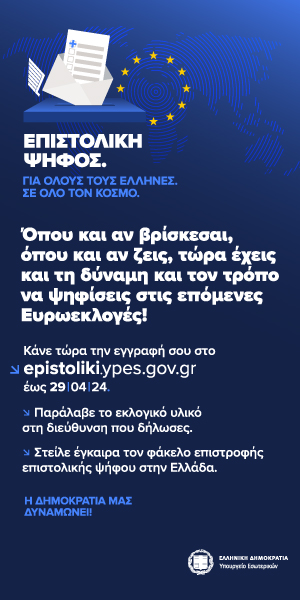By Evaggelos Vallianatos
Every year about thirteen million tourists go to Greece to see the ancient ruins. The decision to go to Greece, in many instances, is a decision to improve oneself. Learning about ancient Greece is a pilgrimage into the heart of civilization. Greek ruins help the visitors fall in love with the land that made their culture possible or, at the very least, help them understand the beauty and achievements of ancient Greece.
The eighteenth-century German poet, Johann Wolfgang von Goethe, was right saying: “Of all peoples, the Greeks have dreamt the dream of life best.”
The Renaissance made a difference
Since the Renaissance in the fifteenth century, the Greeks have been the subject of intense scrutiny and study. Thousands of books continue to be published about them in several Western and non-Western languages. Hundreds of colleges teach ancient Greek in the West and some other countries of the world. Classicists, scholars specializing in Greek and Roman culture, teach ancient Greek and Latin and other facets of Greek and Roman culture.
The verdict is clear: Publishing the Greek and Roman texts, especially the Greek texts, during the Renaissance made all the difference in the Western world. Science, technology and exploration took off and, simultaneously, the Greek-inspired West became the model for the rest of the world.
The Greeks did and said things, which are still relevant to the survival and well being of humanity, particularly now, the dawn of the twenty-first century, a time of warfare against the natural world and crusades among nations espousing one-god religions.
To some degree, we see the world with Greek eyes and think Greek thoughts because we have been using the ideas of the Greeks to build and manage our world; our civilization’s headwaters are Greek, except for a not so minor detail, which is that our morality is not Greek: Western people, including the Greeks of Greece, no longer have a Greek pantheon and cosmos.
The Greek legacy
The Greeks were whole: Their ideas and values were one. They believed in many gods who had a great deal to do with the formation of their character.
Our Greek legacy, while real, is not what it could be, and neither it is coming straightforward from the Greeks, but it is filtered through Christianity. We certainly see the world with Greek eyes, but these eyes wear Christian glasses.
If the headwaters of Western civilization are Greek, and there’s no doubt in my mind they are, where are they located? And what is the best way to drink from those Greek waters?
The Greeks invented epic and tragic poetry, history, philosophy, science, history of science, political theory and democracy, secular literature, theater, and athletics like the Olympics. They invented the polis (city-republic), the idea of the middle class, and the civilian control of the military. They also made substantive contributions to technology.
Indeed, they created the world’s first computer, which goes by the name of Antikythera Mechanism. This marvel of Greek technological achievement was a product of the Alexander the Great age and the model of science it installed in Alexandria. It dates from the second century BCE.
This calendrical and astronomical computer could predict the eclipses of the sun and the moon. It was a link between the heavens and the Earth, enabling the Greeks to connect the movement of the stars with their Pan-Hellenic athletic games, seasons of farming, and their sacrifices to the gods. The computer was also a mirror of advanced studies and progress in astronomy, mathematics, gears and mechanics, and metallurgy. It had a pin-and-slot mechanism that enabled it to reproduce the elliptical movement of the moon around the Earth.
The Antikythera computer also had a differential gear, clearly one of the greatest inventions of all time. Together, the differential gear and the Greek computer, represented advanced-technology that eventually triggered the industrial revolution of the West.
Greek religion
That’s why Americans should care about the Greeks: They are our intellectual ancestors, models of insight and behavior, science, technology and civilization.
Even Greek religion is still a world of wonder and values.
The religion of the Greeks was polytheistic, but it was a religion without dogmas, holy books or clergy. Mary Lefkowitz, a classicist from Wellesley College, says that Greek religion is a religion for adults.
The religious speculation of the Greeks about the gods and the cosmos, an ordered system, found expression in their poetry, mythology, cosmology, literature, dramatic theater and politics. The Greek gods were part of nature and the cosmos. The Greeks used the gods to probe the cosmos, the causal laws in nature leading them to the invention of philosophy and science.
We need to know what the Greeks contributed to our civilization because those Greek gifts of reason and wisdom are the pillars of our science, democracy and well being. They are the attributes that make the West the model for the rest of the world. But knowing that philosophy, science, theater, athletics, politics and democracy have their roots in Greece is not enough. We must have an understanding of how the Greeks developed those revolutionary foundations of civilization so we can continue to support and practice them for invigorating our own democratic traditions of civilization.
An age of crusades and fear in the twenty-first century?
This is very important because we live in an age that feels uncomfortable with the Greeks. The reasons for such a change have to do with prolonged misuse of science, decline of democracy, the rise of empire, crisis at the universities, and the rise of fundamentalist monotheism.
Our time could easily turn into another dark age. Christianity and Islam are hovering over each other, fighting another global crusade. America’s 2003 invasion of Iraq destabilized the Moslem Middle East. Add America’s support for Saudi Arabia and you have chaos. Saudi Arabia, after all, owns and disseminates a fanatical form of Islam, including the new beheading monster calling itself Iraq-Syria state. Thus the wars in the Middle East are more than Muslim civil wars. It’s as if perpetual war is designed to wreck the Middle East. It’s as if the dark-age Mongols are re-conquering the Middle East.
The horror of the Middle East is played out in the context of an even larger horror: the globalization of nuclear weapons, other weapons of mass destruction, and the practice, on a global scale, of a largely immoral business system and trade that threaten the Earth, the Greeks’ sacred Gaia or Ge, with impoverishment and destruction. This crisis demands that we take a moment to rethink our development. Clearly something is wrong.
Neither crusades nor nuclear bombs not melting nuclear plants nor the destruction of nature nor undermining of our democracy fit in the Greek way. That’s why there is an urgent need to study and understand the Greeks.
The Greek paradigm
The Greeks were by no means perfect: They fought with each other. They had slaves and did not give women the same rights they gave to men. So they did not live up to their ideals – and, in that failure, they mirror the tragic human condition.
The fifth-century BCE poets, Aeschylus and Sophocles, decried the ghost-like reality of human beings who, within moments, can go from the heights of heroism and splendor to destruction and extinction, all the edifice of men resembling a fogged glass, which, in times of trouble, one can use a wet sponge to wipe out.
The Greeks, however, recognized the extreme vulnerability of human beings, so they tried to stay the course with maintaining their ancient traditions, piety for their gods, and celebration of their common culture. The Olympics and the Pan-Hellenic games brought them closer to each other and their gods.
They also understood the injustice of slavery. Alkidamas, a teacher of rhetoric born in the last quarter of the fifth century BCE, said the gods gave all men freedom. The gods made no man a slave, he wrote.
Greek tragic poets gave intelligent and heroic roles to women. The heroine Antigone of Sophocles defended the noblest virtues of Greek culture, the love of a sister for her brother, and the superiority of divine over arbitrary human conventions. It was from this understanding of the Greeks — that Greek and non-Greek, and male and female, shared a common humanity — that convinced the West in the eighteenth century to end slavery and, a century or so later, lessen and, eventually, abolish the inequalities between men and women.
The road to human rights starts with the Greeks. They were the first people who lived the “examined life” of Socrates, their greatest moral philosopher and teacher of Plato.
They also appreciated the culture of foreign people like Egyptians, Babylonians, Persians, Ethiopians and Indians. When they talked about barbarians they meant people who were living the lives of slaves. So the Greeks were, and continue to be, controversial.
A movement for a global polis of gods and men
“It seems quite clear,” says the British classical scholar, Gilbert Murray, in 1921, “that the Greeks owed exceedingly little to foreign influence… They built up their civilization for themselves.”
The Greeks, of course, had their own critics who denounced superstition, the “slave-driver” and the oppressor of women. Murray says, “it is not those people [practicing superstition and oppressing slaves and women] that constitute Greece; those people can be found all over the historical world, commoner than blackberries… what constitutes Greece is the movement which leads from all these to the Stoic or fifth-century ‘sophist’ who condemns and denies slavery, who has abolished all cruel superstitions and preaches some religion based on philosophy and humanity, who claims for women the same spiritual rights as for man, who looks on all human creatures as his brethren, and the world as ‘one great City of gods and men’. It is that movement which you will not find elsewhere, any more than the statues of Pheidias or the dialogues of Plato or the poems of Aeschylus and Euripides.”
We have a long way to go before we feel secure with the legacy of the Greeks.
Writing in the late 1940s, a time after a savage world war and holocaust, a distinguished classicist, Gilbert Highet, said this: “What the Renaissance did was to dig down through the silt [of Christianity] and find the lost beauties [of Greek and Roman culture], and imitate or emulate them.”
We have to do the same thing: Dig down through the silt of imperial hubris, alarming religious tensions, creeping undemocratic practices, bad science and suicidal public health and environmental policies to rediscover the Greek texts and imitate or emulate the struggle of the Greeks for an honest democratic life lived in freedom and in concert with healthy human beings and a healthy Mother Earth.
The Greek texts may yet inspire us to return to the Greek traditions of reason, the good and the beautiful, and the ecological.
Evaggelos Vallianatos, Ph.D., worked for 27 years on Capitol Hill and the US Environmental Protection Agency. He taught at several universities. He is also the author of several books, including “Poison Spring” (Bloomsbury Press, 2014).







